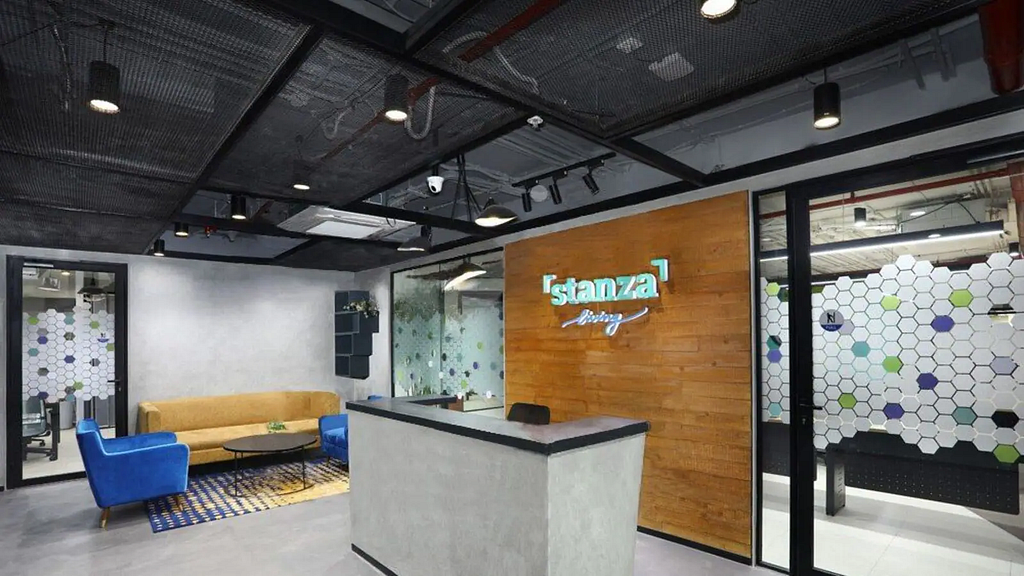
Capitalizing on Gen AI in Edtech: Riding the Wave of Next-Generation Technology
Photo by Andrew Neel on Unsplash
One of the pioneer samples of generative AI: ChatGPT, has been the talk of the town since it got here. It became the fastest to reach 1 million users by achieving the feat in 5 days, becoming the fastest platform to do so. Unless you have been living under a rock, you have heard of it and searched for whether it can help at/take over your job. With its ability to retain conversation context and its plethora of knowledge, it can answer almost any question a user poses and customize the understanding based on the user’s learning patterns. It then remains to see how or whether it will threaten the mammoth EdTech industry.
Source: SimilarWeb
What does generative AI have to offer?
Personalized learning: One of the most significant benefits of the technology is its ability to personalize the learning experience for users by analyzing their learning patterns, current understanding levels, and interests. While most tutoring and coaching EdTech solutions have a many-to-one teacher-student classroom, AI-powered chatbots create a virtual 1:1 classroom — scientifically proven to enhance students’ understanding significantly.
For example, Vedantu and Unacademy offer online classes to an average batch size of 60–70. At the same time, students can get 1:1 guidance from the chatbot!
EdTech firms offering Learning Management Solutions (LMS) focused on providing users with customized course recommendations and learning paths. AI can do the same — some tools can do it for free!
Assessment and testing EdTech solutions created common assessments for all students in the same age group. However, this next-gen technology can go a notch above by creating customized tests and quizzes for every learner and providing real-time feedback.Know-it-all doubt solver: Unlike LMS and tutoring EdTech firms which have common doubt-solving sessions for an entire class, AI assistants offer real-time answers specializing in precise and concise explanations, with an opportunity to users for infinite follow-ups.
For example, Doubtnut offers a doubt-solving search engine that returns videos where the professor has discussed the topic. Instead of watching an entire video and listening through the complete topic, students can pose the question to ChatGPT and receive the explanation within seconds. It can also answer queries beyond the syllabus, which EdTech solutions do not offer.Free ultimate knowledge base: ChatGPT has been trained on a large corpus, including over 570GB of text data. Hence, its knowledge base is vast, unlike the limited scope of most online courses. Therefore, it can provide text-based study materials, which may be preferred over expensive online courses. It can completely take over the script writing services of courseware development solutions.Your unrelenting language partner: Learning a new language requires much practice and conversation. AI-powered chatbots offer unlimited flexibility and time to learn and practice the language through extensive discussions. Language Learning solutions offer a pre-determined path to language learning which is not tailored to every learner and has a fixed set of exercises for the user to practice.
EdTech solutions which have the most to benefit from AI integration:
B2B business model companies:
B2C business model companies:
What are the limitations of Gen AI?
Data privacy and regulation concerns: With the increasing use of AI, there are growing concerns about data privacy and the need for regulations to protect user information. Gen AI, including ChatGPT, relies on vast amounts of data, and ensuring the confidentiality and security of that data becomes crucial.Imperfection leads to mistakes: While AI models like ChatGPT have shown impressive capabilities, they are not infallible. They can still produce errors, inaccuracies, or biased responses. Achieving complete accuracy and eliminating biases remains a challenge in developing AI systems.Relies on quality of user input: The degree of personalization and quality of responses largely depend on the quality of user prompts — an area of concern for Pre-K and K-8 learners who need to be older to be skilled. As generative AI tools are relatively new to the market, developing the skills to frame the appropriate prompts is crucial to receive the best results.Limited abilities: Both talent management and corporate training solutions need a degree of human interaction which is not possible for ChatGPT to provide. As standardized tests follow a specified set of rules and standards, currently general-purpose AI models cannot produce accurate timer-based standardized tests, the USP of test preparation EdTech solutions. In contrast to certification and accreditation solutions, it has no authority to certify or validate a learner’s knowledge.
Mitigation possible and needed:
Integrating AI into existing solutions gives an excellent opportunity for most EdTech firms to mitigate the risk of threats from next-gen technology. Some services may slowly be rendered obsolete, such as scriptwriting for course videos/content, paid doubt-solving sessions, and on-demand homework aid. However, this will allow humans to focus more on nuanced student guidance and mentorship.
Use cases:
Khan Academy (LMS): In March 2023, Khan Academy launched its own chatbot Khanmigo which uses OpenAI’s GPT-4 model.Source: KJhan Academy
Khanmigo offers a student mode as well as a teacher mode.
Student mode offers a personal counsellor to the students. Unlike the general purpose ChatGPT, this chatbot is trained on the entirety of Khan Academy’s educational resources to provide personalized guidance and mentorship to students. In a recent TED talk, Khan cited Bloom’s 2-Sigma Problem to highlight the almost doubled understanding of students in a dedicated mentor setup compared to the traditional classroom setting. The Khanmigo mentor also has AI-powered versions that take on the personas of historical figures, literary characters, and even natural phenomena. Imagine studying physics concepts from AI-driven Isaac Newton! The chatbot has also been trained not to give away the answers but to nudge the students in the right direction of thinking and explain their reasoning along the way. Besides guidance and mentorship, it also offers other avenues of learning through engaging debates and collaborative writing exercises.
The teacher mode assists teachers by helping them create study materials, allowing them to focus more on student guidance. Based on the teacher’s needs, it can create lesson plans, education materials, progress reports, and many more.
Keeping in mind the major concerns regarding data privacy in AI, Khan Academy maintains strict data protection policies and measures to ensure the safety of user data. As an additional safety measure, there exists a second AI that monitors interactions with the chatbot to ensure that conversations remain within safe boundaries. It automatically notifies teachers and parents and shuts down the system in case of any untoward interactions.
Tutoring and coaching EdTech companies can adopt similar solutions.
2. Duolingo ( Language learning ): Duolingo also launched its top-tier subscription titled Duolingo Max, which integrates AI into the language learning journey of users.
While the existing Duolingo capabilities were based on explicit learning, i.e., stating the rules of grammar and explaining everyday phrases, implicit learning is a significant component of language learning which can only be achieved through practice conversations and personalized feedback. This is where AI comes into the picture. Duolingo Max offers two new features to users: Explain my answer — where the user gets real-time feedback on not just what the correct answer is but also why their specific answer is wrong and what is the reasoning behind that; Roleplay — where the user can practice real-life like nice-situation conversations such as ordering food at a French restaurant, grocery shopping checkout counter, etc. GPT has nearly perfected the conversational flow, providing a more life-like experience than pre-defined prompts and replies.
The new Duolingo Max subscription
3. Doubtnut (LMS): The India-based ed-tech startup Doubtnut — staying true to its name — aims to directly serve and support individual students by providing them with study materials and solutions to their academic queries. When the student poses a question to their information retrieval search engine, it scrapes the library of Doubnut educational resources (including texts, audio, and videos) to return the results pertinent to the user. With the recent advancements in generative AI, Doubtnut can utilize the latest natural language processing models, such as GPT-4 or LaMDA, instead of a database scraping information retrieval search engine to answer doubts more accurately and include more personalized responses to students.
4. Byju’s / Toppr (Online courses/ Courseware development): EdTech firms creating online courses for students can use AI to automate the process entirely. The first step would involve making the script for the videos on NLP models such as ChatGPT or Google’s Bard AI. With their unlimited knowledge and advanced conversational skills, they can create scripts on any topic under the sun. Utilizing these generated scripts, these companies can use generative AI content solutions such as NOLEJ AI to create all types of study material, like interactive videos, quizzes, and flashcards. Suppose they wish to add a human touch. In that case, they can generate digital avatars of their teachers and use JustBaat’s product to create lecture videos of the teacher reciting the generated script.
Ultimately, the effectiveness of generative AI for education will depend on how it is programmed and used. If used in conjunction with human educators and existing EdTech options, it has the potential to enhance the learning experience and provide students with personalized support. According to a recent Impact Research study of K–12 schools, a third of surveyed students and 51% of teachers utilize ChatGPT in the classroom, with an extensive percentage sharing that it has improved their teaching and learning.
Capitalizing on Gen AI in Edtech: Riding the Wave of Next-Generation Technology was originally published in LoEstro Advisors on Medium, where people are continuing the conversation by highlighting and responding to this story.

